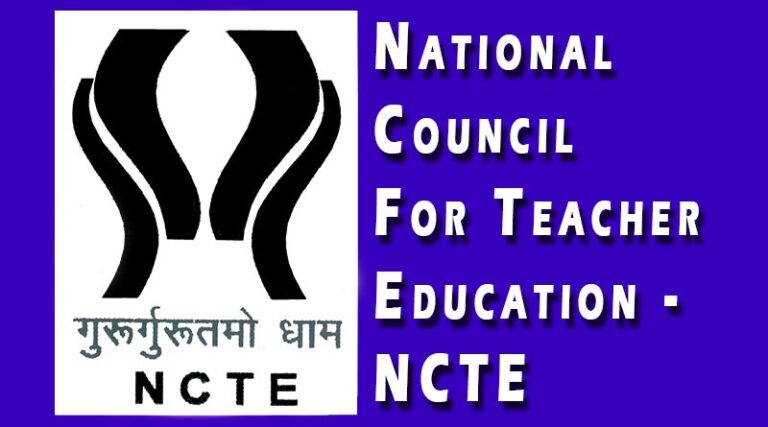

National Council of Teacher Education (NCTE) - Introduction
Naief Khatri

The National Council for Teacher Education (NCTE) was set up by Government of India in 1973 as an advisory body to the government at the Center and the State, on matters related to teacher education. However, in 1986 the government framed a National Policy on Education (NPE), which stressed on the need to set up a statuary body to look after the teacher’s education in the country, as a first step to produce good teaching professionals in the country. On 17thAugust 1995, National Council for Teacher Education (NCTE) was conferred the status of statutory body in pursuance to the National Council for Teacher Education Act, 1993.
The National Council of Teacher Education (NCTE) sets up norms and standards for teacher’s education right from pre-school teacher education to post graduate level teacher education. Apart from this, the council also plans, coordinates and implements innovative ways to educate teachers. The purpose of Government of India to achieve planned and coordinated development of the teacher education system throughout the country is also achieved by the NCTE.
The Council has it’s headquarter at New Delhi and four Regional Committees at Bangalore, Bhopal, Bhubaneshwar and Jaipur to look after its responsibilities. The NCTE is headed by a Chairperson. The Regional Committee of NCTE is managed by Regional Director of the committee.
Objective
The main objective of the NCTE is to achieve planned and coordinated development of the teacher education system throughout the country, the regulation and proper maintenance of Norms and Standards in the teacher education system and for matters connected therewith. The mandate given to the NCTE is very broad and covers the whole gamut of teacher education programmes including research and training of persons for equipping them to teach at pre-primary, primary, secondary and senior secondary stages in schools, and non-formal education, part-time education, adult education and distance (correspondence) education courses.
Programmes Recognised by NCTE
NCTE notified revised Regulations and Norms and Standards on November 28, 2014 for the following Teacher Education Programmes:
- Diploma in early childhood education programme leading to Diploma in Preschool Education (DPSE).
- Elementary teacher education programme leading to Diploma in Elementary Education (D.El.Ed.).
- Bachelor of elementary teacher education programme leading to Bachelor of Elementary Education (B.El.Ed.) degree.
- Bachelor of education programme leading to Bachelor of Education (B.Ed.) degree.
- Master of education programme leading to Master of Education (M.Ed.) degree.
- Diploma in physical education programme leading to Diploma in Physical Education (D.P.Ed.).
- Bachelor of physical education programme leading to Bachelor of Physical Education (B.P.Ed.) degree.
- Master of physical education programme leading to Master of Physical Education (M.P.Ed.) degree.
- Diploma in elementary education programme through Open and Distance Learning System leading to Diploma in Elementary Education (D.El.Ed.).
- Bachelor of education programme through Open and Distance Learning System leading to Bachelor of Education (B.Ed.) degree.
- Diploma in arts education (Visual Arts) programme leading to Diploma in Arts Education (Visual Arts).
- Diploma in arts education (Performing Arts) programme leading to Diploma in Arts Education (Performing Arts).
- 4-year Integrated programme leading to B.A.B.Ed./B.Sc.B.Ed. degree.
- Bachelor of education programme 3-year (Part Time) leading to Bachelor of Education (B.Ed) degree.
- 3-year Integrated programme leading to B.Ed., M.Ed (Integrated) degree.
Related Links
Latest News
People Reading Now

CBSE Compartment Result 2023 OUT: Click For Direct Link



CSAB 2023: Special Round Registration Begins Today


